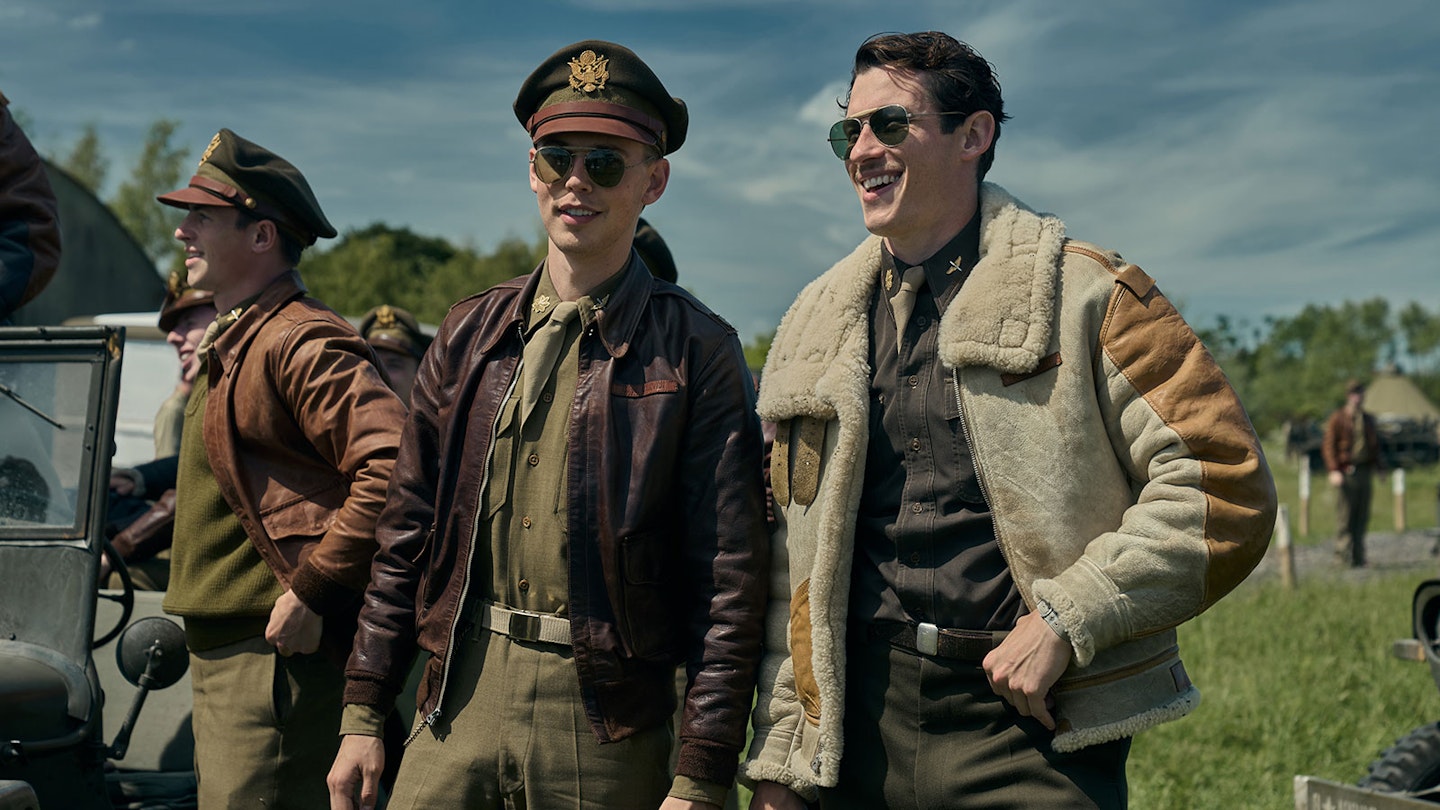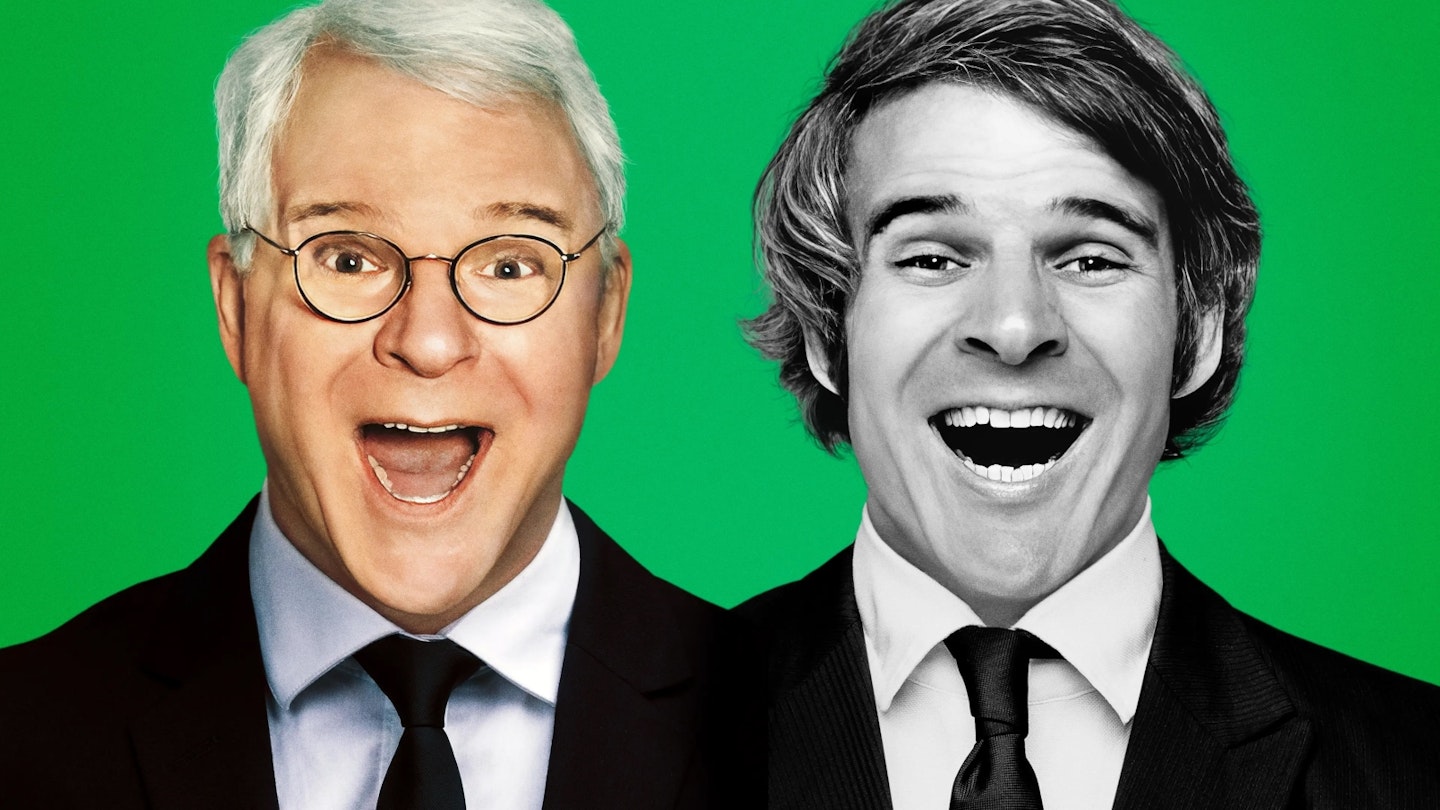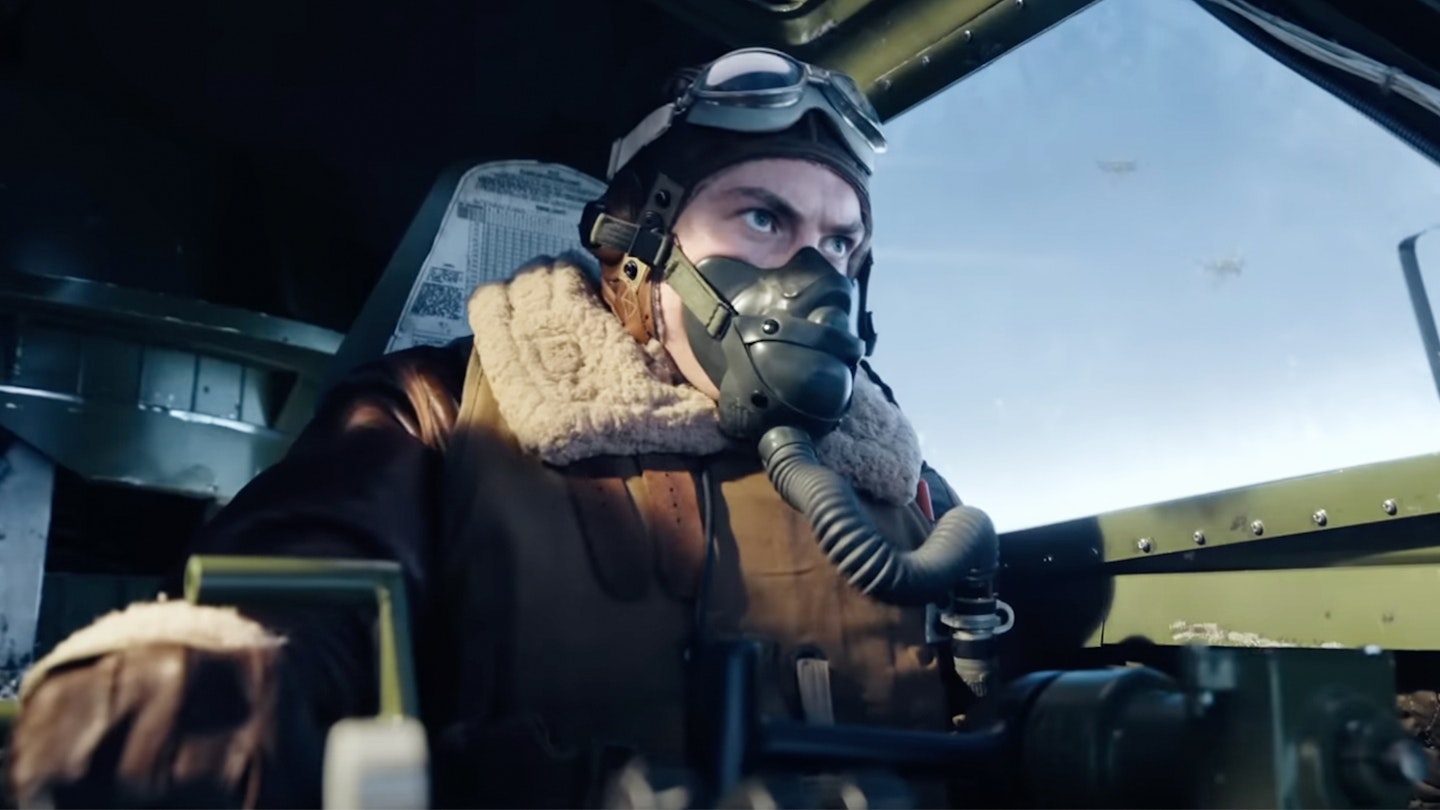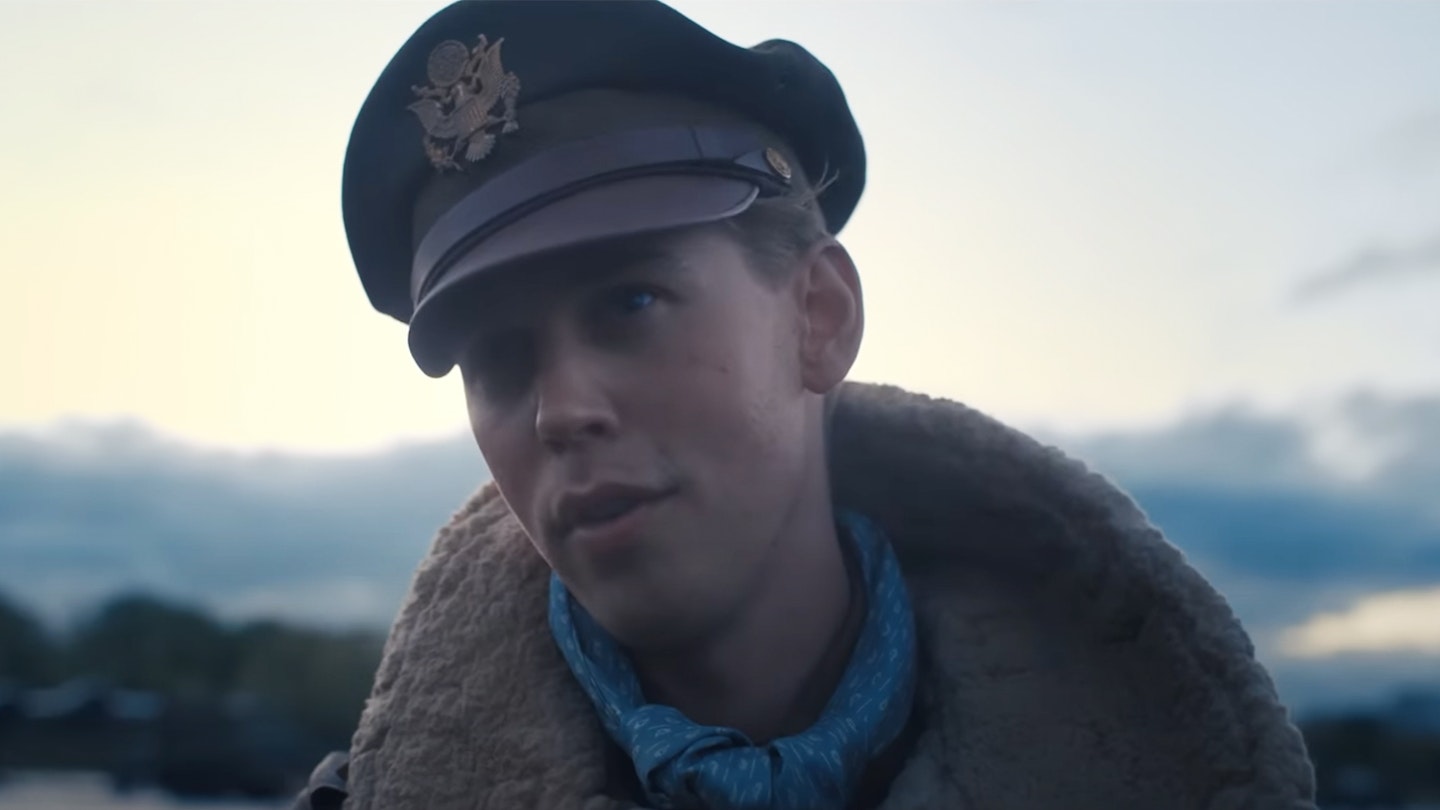We are spoiled with blockbuster telly in the streaming era — but back in 2001, there was nothing quite like Band Of Brothers. HBO’s grand adaptation of Stephen Ambrose’s non-fiction World War II tome was, at the time, the most expensive television series ever mounted. Epic in budget, in scale, in scope and in stars, it boasted ten stunning episodes on a breadth rarely seen on TV. Bolstered by Steven Spielberg and Tom Hanks — fresh off of Saving Private Ryan — as executive producers, it was in every sense a landmark.
A sibling, The Pacific, arrived in 2010, and now, roughly another decade or so later, the same creative team — jumping ship to HBO rival Apple — revisit World War II from another perspective: the sky. It follows a similar arc and quality to the two earlier shows: a gentle voiceover (Anthony Boyle, as likeable navigator Major Harry Crosby) guiding us through the familiar soldier’s journey of excitement, losses, replacements, burnout, and salutary reminders of why we fight. The real-life 100th Bomb Group featured here were, like the Easy Company of Band Of Brothers, famous for taking unusually heavy losses, earning the nickname of the ‘Bloody Hundredth’.
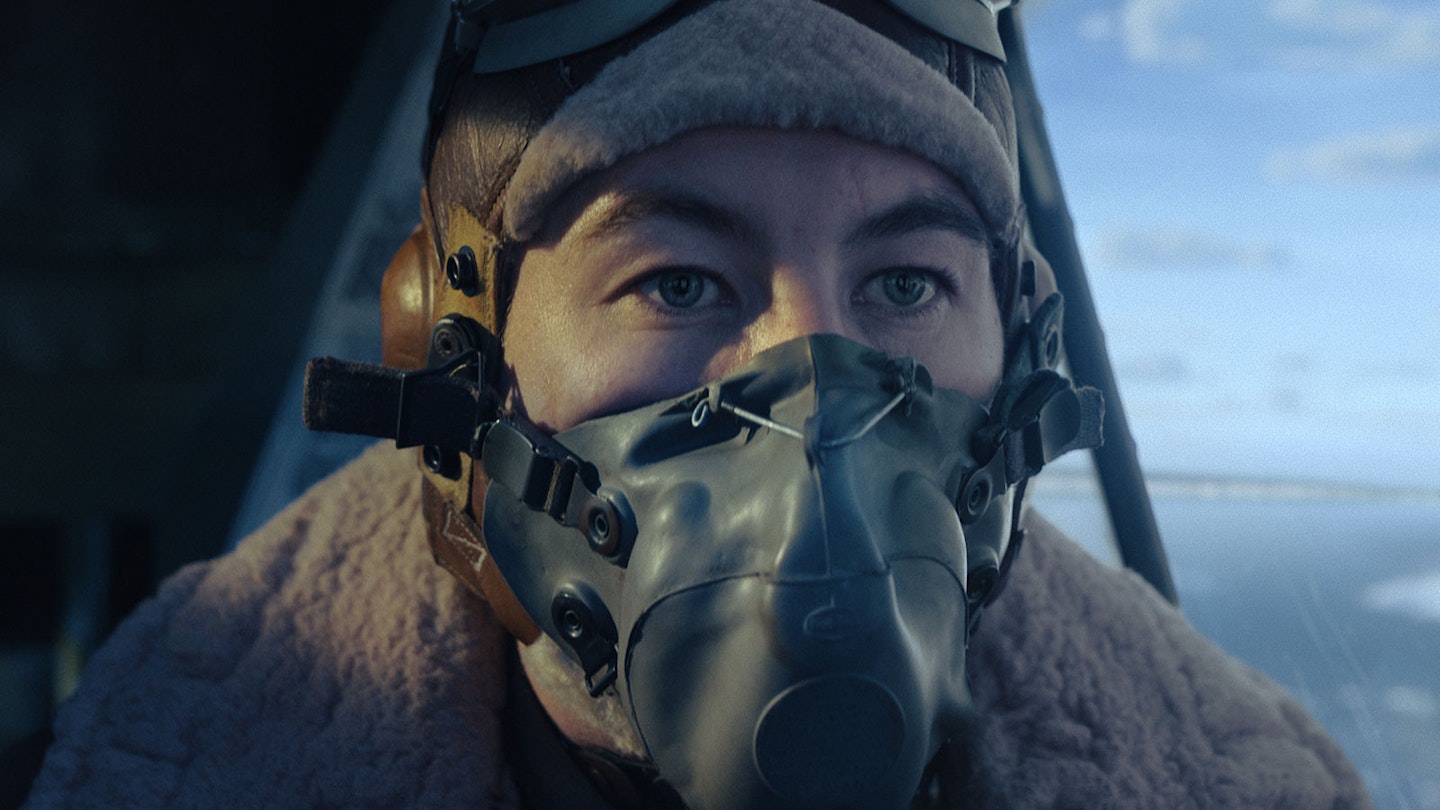
Series writer John Orloff, adapting the book of the same name by Donald L. Miller, recognises that the strength of these shows rests on characters and actors for us to cling onto in the mêlée. Just as the heart of Band Of Brothers was the friendship between officers Richard Winters (Damian Lewis) and Lewis Nixon (Ron Livingston), the chemistry between Austin Butler’s Gale ‘Buck’ Cleven and Callum Turner’s John ‘Bucky’ Egan is central to Masters. Butler brings a kind of Top Gun cool to Buck: with his matinée looks, bassy voice and ever-present toothpick, he is an old-fashioned kind of leader. Bucky is the more impulsive, harder-drinking id of the pair, the British actor lending some astute human touches (mispronouncing ‘Norfolk’, as an American would, is a lovely choice).
Every episode makes for heart-stopping viewing.
As the series progresses, the focus shifts around the ensemble: tough-talking Curtis Biddick (an unusually straight-laced Barry Keoghan), heroic Robert ‘Rosie’ Rosenthal (Nate Mann, excellent) and boundary-breaking Robert Daniels (Ncuti Gatwa, underused). The series allows you to get just attached enough to these characters before they begin taking casualties in shocking numbers.
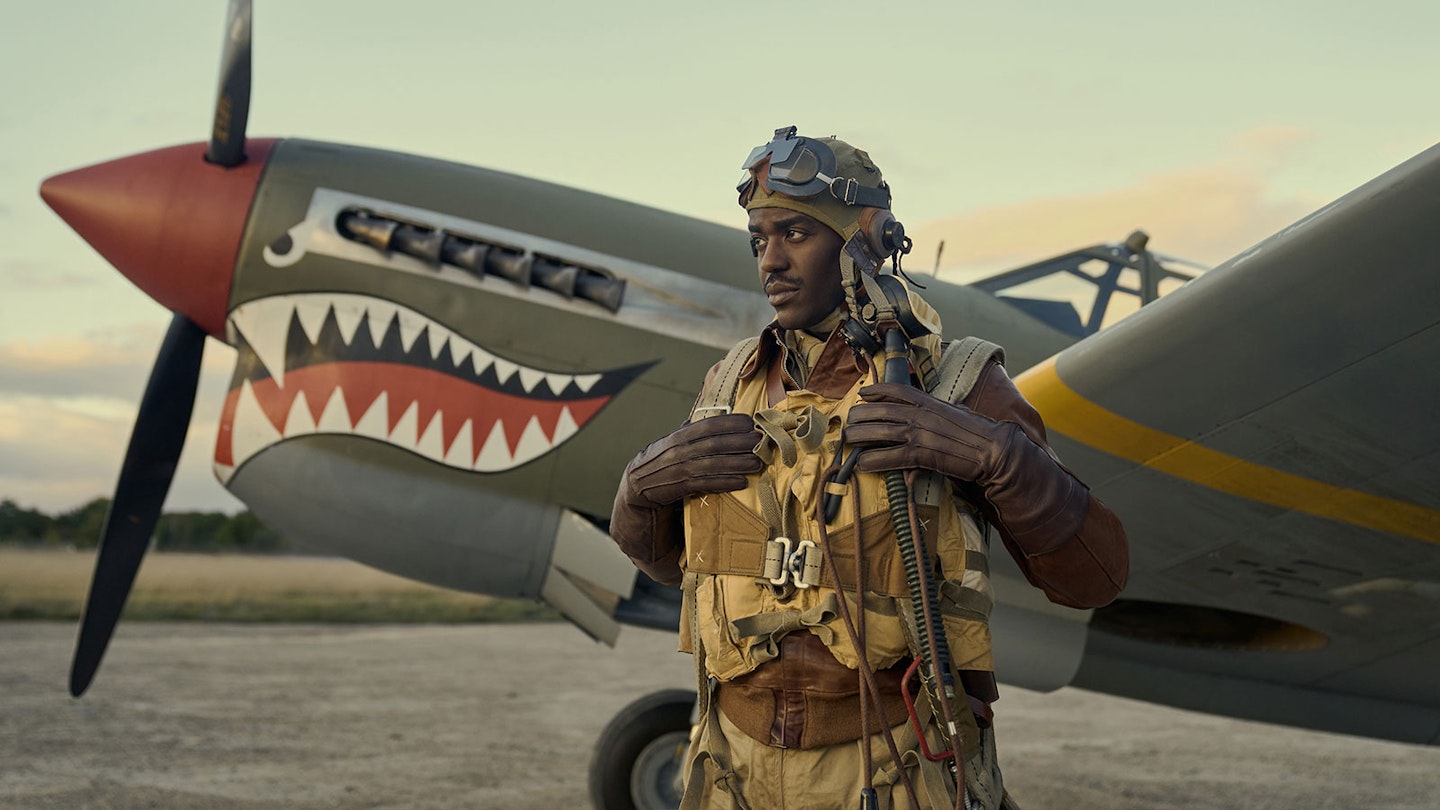
Every episode makes for heart-stopping viewing. Under the steady watch of directors like Cary Joji Fukunaga and Band Of Brothers veteran Tim Van Patten, the flying sequences, and the ridiculous risks undertaken, are staged with a superbly confident hand. An epic bombing run in Episode 3, the largest air armada in human history at the time, is unbearably gripping; bailing out of a burning plane to parachute into Nazi-occupied Europe, it’s clear, requires a mind-boggling level of courage. It’s not always clear what’s happening, especially with opaque air-force jargon flying around and the whole cast acting from under masks, but that confusion only adds to the experience. It’s unfortunate that you sometimes feel the excessive use of CGI (by necessity — none of the B-17 planes flown by the 100th are in operation any longer), but the drama and intensity is always kept at maximum altitude.
Inevitably, this all comes with a certain strain of American exceptionalism. Masters Of The Air does occasionally remember that there were other countries fighting with the Allies in World War II, but the RAF enjoy only a passing mention, and non-Americans are largely depicted through stereotypes or clichés (Brits are invariably stiff-upper-lipped; one German gets the unironic line, “For you, ze war is over”). This is a view of the war from a triumphalist American lens; the final episode even offers a moment of literal flag-fluttering Stars-and-Stripes patriotism.
Yet it’s hard not to be stirred. There is something moving about the moral simplicity of it all, a straightforward fight against fascism and the astonishing response from ordinary men using unbelievably precarious (and at the time, brand-new) technology. At its best, Masters Of The Air functions like the epic war movies Hollywood used to produce: a vast canvas, a sweeping starry ensemble, a sobering, involving reminder of history’s bloodiest conflict. Let’s hope Spielberg, Hanks et al do it again in another ten years.
